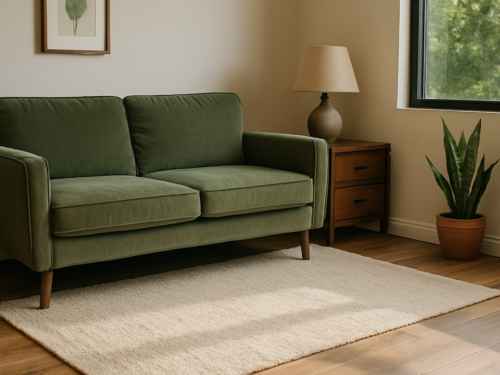
Choosing Flooring for Allergy Sufferers: Best Hypoallergenic Options
If someone in your home struggles with allergies or asthma, your flooring can make a big difference. Dust, pet dander, and allergens often get trapped in floors, causing sneezes, coughs, and breathing trouble. The good news? Choosing hypoallergenic flooring can help reduce these symptoms and make your home healthier and happier for everyone.
What Makes Flooring Hypoallergenic?
Hypoallergenic floors are specially designed to limit allergens like dust, pollen, mold, and pet hair. They’re usually easy to clean and don’t trap particles as carpets do. Let’s look at some great hypoallergenic flooring options to consider for your home.
Top Hypoallergenic Flooring Choices
1. Hardwood Flooring
Hardwood floors are beautiful, durable, and naturally hypoallergenic. Dust and dirt don’t stick easily, making hardwood simple to clean. Regular sweeping or vacuuming keeps allergens away. Explore our selection of quality hardwood flooring options that fit your style and needs.
2. Luxury Vinyl Plank (LVP)
Luxury vinyl plank flooring is waterproof, affordable, and perfect for allergy sufferers. Its smooth surface doesn’t trap allergens, and spills or pet accidents clean up quickly. Check out our luxury vinyl plank floors for a hypoallergenic solution that’s stylish and easy to maintain.
3. Ceramic or Porcelain Tile
Ceramic and porcelain tiles are naturally resistant to allergens, bacteria, and moisture. They’re ideal for kitchens, bathrooms, and other high-moisture areas. Easy to clean, tile flooring is an excellent hypoallergenic choice.
Floors to Avoid for Allergy Sufferers
If allergies are an issue, try to avoid deep carpets or shaggy rugs. These trap dust, dander, pollen, and other allergens that can trigger symptoms. If you love carpet, choose short, tightly-woven styles and vacuum regularly.
Maintenance Tips for Hypoallergenic Flooring
- Sweep or vacuum regularly to keep allergens at bay.
- Use a damp mop with gentle cleaning solutions to remove dust thoroughly.
- Place washable rugs at entry points to reduce dirt tracked indoors.
FAQs about Hypoallergenic Flooring
Can flooring really affect my allergies?
Absolutely! Flooring that traps allergens can significantly worsen allergy symptoms. Switching to hypoallergenic flooring can reduce symptoms and improve indoor air quality.
Is luxury vinyl plank flooring safe for allergies?
Yes! Luxury vinyl plank flooring doesn’t hold onto allergens, is easy to clean, and resists mold growth, making it a top choice for allergy sufferers.
How often should I clean floors if someone has allergies?
Regular cleaning is key. Ideally, sweep or vacuum at least once a week, and mop regularly to minimize allergens.
Conclusion
Choosing hypoallergenic flooring is an effective way to improve your home’s indoor air quality and reduce allergy symptoms. From beautiful hardwood to easy-to-maintain vinyl, there are plenty of stylish, healthy options to explore.
Ready to make your home allergy-friendly?
Visit our flooring products page or contact our flooring specialists for personalized recommendations today!


